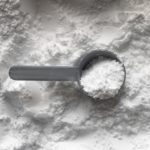Pre-workout supplements are becoming increasingly popular due to their potential benefits, such as improved focus, energy, endurance, performance, and reduced muscle fatigue. A growing variety of brands are now available in specialty stores, pharmacies, and supermarkets.
However, with so many choices on the market, it’s important to consider whether consumers are aware of the risks and ingredients in these products, and whether they genuinely enhance physical performance.
Typically available in powdered form, pre-workout supplements can also come as capsules, gummies, gels, or ready-to-drink liquids. They often contain a mix of ingredients like caffeine, beta-alanine, arginine, taurine, and creatine, with formulations varying by brand.
Dr. Cristiano Barcellos, director of the Department of Sports and Exercise Endocrinology at the Brazilian Society of Endocrinology and Metabolism, notes, “Pre-workout supplements usually contain a mix of elements, including vitamins, proteins, and amino acids, but only a small fraction has scientifically proven effects on sports performance.”
Key Ingredients and Their Effects
Barcellos highlights four substances with strong evidence supporting their benefits for physical activity:
- Caffeine: Enhances alertness; recommended daily dose (including coffee) is 3-6 mg/kg of body weight.
- Beta-alanine: Increases cellular carnosine to combat muscle acidity; beneficial for intense exercises lasting 1-4 minutes.
- Creatine: Improves strength and muscular endurance, especially during short, high-intensity efforts.
- Nitrate: Enhances circulation and supports long-duration aerobic activities.
Safety Concerns
In addition to these key ingredients, pre-workout supplements may contain other substances like citrulline, malate, arginine, taurine, tyrosine, and branched-chain amino acids. While they might produce desired effects, current evidence supporting their efficacy is generally weak to moderate, necessitating further research.
Without understanding these components, individuals may mistakenly take pre-workout supplements designed for short, high-intensity workouts while engaging in longer aerobic activities, which could lead to decreased performance and unexpected side effects.
Barcellos warns, “There have been cases requiring hospitalization and, in some instances, fatalities. People may only experience the side effects of these substances, so I do not recommend using these pre-mixed formulations. It’s best to consult qualified professionals like nutritionists or sports physicians for individual components.”
Caffeine Risks
Caffeine, a common stimulant in pre-workout supplements, is effective for enhancing focus but poses health risks, especially when some products exceed the recommended limit of 200 mg, containing up to 1 g.
Dr. Luiz Eduardo Ritt, president of the Department of Ergometry and Cardiovascular Rehabilitation at the Brazilian Society of Cardiology, advises caution due to the variability in individual responses. Some patients have experienced arrhythmias during strenuous efforts, which can escalate to cardiac arrest.
Ritt emphasizes that combining caffeine with hormones or antidepressants can heighten the risk of arrhythmias due to increased adrenergic tone and QT interval widening, which can lead to severe arrhythmias.
Beta-Alanine Concerns
Beta-alanine is another common ingredient associated with paresthesia, a side effect that causes tingling in the extremities. While this sensation is generally harmless, its mechanism is still being studied. The Brazilian National Health Surveillance Agency (ANVISA) approved beta-alanine for use in 2020, following pressure from the sports sector, although it had been available only in imported products prior to that.
A review by the International Society of Sports Nutrition confirmed beta-alanine’s ergogenic effects, particularly for short, high-intensity workouts, and established a favorable safety profile.
Clinical Guidance
Using pre-workout supplements should be personalized. Ritt states, “It’s essential to evaluate the product, dosage, individual sensitivity, and any concurrent use of other substances. Risks can accumulate with each of these factors.” A basic electrocardiogram can detect cardiac rhythm abnormalities and cardiovascular risks, providing valuable insights into an individual’s health status.
A balanced diet is crucial for overall health and performance. Natural foods can offer beneficial metabolic effects without reliance on supplements. For instance, nitrates found in vegetables like beetroot can enhance performance by promoting nitric oxide production.
Barcellos notes, “There’s no need for powdered supplements when natural sources can deliver similar benefits.” Other natural products with potential ergogenic properties include coffee and guarana powder, while cinnamon and ginger may also support physical performance.
However, Ritt cautions that natural does not mean risk-free, and excessive use of any supplement can lead to negative health effects, including liver toxicity. Hydration is also vital; inadequate hydration during intense exercise, especially in hot and humid conditions, can lead to serious health issues.
Conclusion
As pre-workout supplements continue to gain traction, consumers must be informed about their ingredients, potential risks, and the importance of personalized guidance from health professionals. A balanced diet and proper hydration remain fundamental for optimizing physical performance.
Alpha Expat can help you reach your fitness and nutrition goals with customised solutions. Reach out to us and get the ball rolling, or click on the WhatsApp button in the lower right corner.
From: Medscape
Photo: Upsplash



